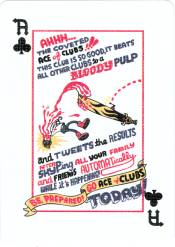

We have a handmade canoe hanging from the ceiling, and an old confessional that’s now a forgiveness booth, where instead of confessing you just touch it and are absolved.

The store itself was made from cedar wood and bark-on birch logs that fell after a winter storm. I wanted to have a bookstore where we could also sell the extraordinary things made by Indigenous people - so we have jewelry, beadwork, baskets and medicines.

We’re a tiny general-interest shop with a concentration in Native American or Indigenous writing: fiction, poetry, history, politics, food, memoir and material that supports Indigenous language revitalization, particularly the Ojibwe and Dakota languages. (My tribe is Turtle Mountain Chippewa.) The store’s on Dakota land. In 2001, I opened Birchbark Books in Minneapolis, named because some of the first books in North America were written on scrolls of bark by the Anishinaabe people. Maybe by then I feel the pull of the bookstore. I switch to drinking black tea with honey. Compact Disc (April 30th, 2010): $29.For lunch? Whatever I can find.Juvenile Fiction / Science & Nature / Environment.Juvenile Fiction / Diversity & Multicultural.Juvenile Fiction / Family / Multigenerational.Juvenile Fiction / Historical / United States / 19th Century.Juvenile Fiction / People & Places / United States / Native American.The beloved and essential Birchbark House series by Louise Erdrich includes The Birchbark House, The Game of Silence, The Porcupine Year, Chickadee, and Makoons. Though there are growing numbers of white people encroaching on their land, life continues much as it always has.īut the satisfying rhythms of their life are shattered when a visitor comes to their lodge one winter night, bringing with him an invisible enemy that will change things forever-but that will eventually lead Omakayas to discover her calling.īy turns moving and humorous, this novel is a breathtaking tour de force by a gifted writer. Omakayas and her family live on an island in Lake Superior.

She was named Omakayas, or Little Frog, because her first step was a hop. This National Book Award finalist by Pulitzer Prize-winning novelist Louise Erdrich is the first installment in an essential nine-book series chronicling 100 years in the life of one Ojibwe family, and includes beautiful interior black-and-white artwork done by the author.


 0 kommentar(er)
0 kommentar(er)
